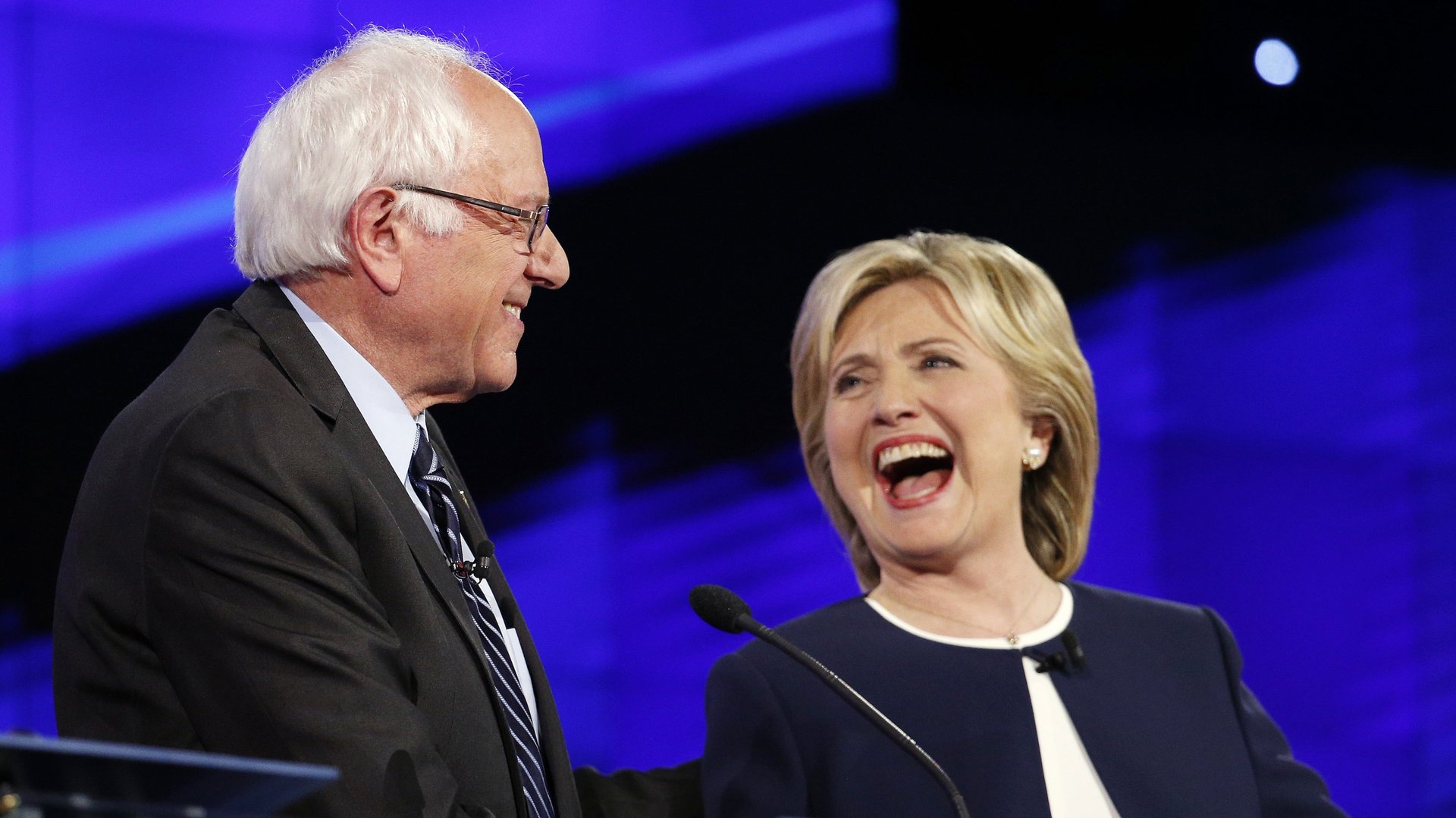Democrats’ dream ticket just stood side by side on the debate stage
It would be difficult, if not impossible, for Democrats to match the energies of the last two US presidential election cycles. 2008 was inspiring; full of hope and not a small sense of reprieve after eight years of disastrous military and foreign policy. 2012 was more a hot panic—no, president Barack Obama had not (yet) delivered on a lot of what he promised four years prior, but the notion of Mitt Romney in the Oval Office was prime motivation for many to get out and vote.


It would be difficult, if not impossible, for Democrats to match the energies of the last two US presidential election cycles. 2008 was inspiring; full of hope and not a small sense of reprieve after eight years of disastrous military and foreign policy. 2012 was more a hot panic—no, president Barack Obama had not (yet) delivered on a lot of what he promised four years prior, but the notion of Mitt Romney in the Oval Office was prime motivation for many to get out and vote.
Until now, I’m sure a lot of American progressives were finding it hard to get excited about 2016. It seemed they had to pick between an establishment candidate who, though broadly appealing, wasn’t particularly exciting; and an intriguing outsider who they feared didn’t have what it took to win a national election. That changed last night in Las Vegas.
The first Democratic debate demonstrated that American progressives have plenty to be excited about in 2016. Namely because the frontrunners—former secretary of state Hillary Rodham Clinton and senator Bernie Sanders of Vermont (and, to an extent, even background players like former Maryland governor Martin O’Malley)—acted like bona fide adults with a real interest in effective governing, as opposed to the showboating fame-seekers on display at the second Republican debate in California last month.
The candidates, though not overly deferential, were generally respectful of one another. Disagreements were civil, not snide; any ideological clashes were contained, and did not stray into overkill territory. It was a situation in which the candidates knew exactly what they had to offer (Sanders on Wall Street, Clinton on foreign policy and gun control, O’Malley also on gun control), and did so with confidence, and what at least felt like genuine passion.
Prior to last night, the hypothetical 2016 ticket seemed as though it would be an inevitable choice between Sanders and Clinton—that in selecting one, a substantial segment of the progressive voting bloc would be unmotivated to support the other, come the general election, thus handing the White House to the Republican nominee. But, after a particularly heartening moment between the two candidates, in which senator Sanders echoed Clinton’s appeals to move beyond the political circus surrounding her email usage, it no longer seems entirely impossible for a Clinton/Sanders ticket to emerge in the next year. (Or perhaps even the reverse, depending on how the primaries shake out.)
And to run with that possibility, such a ticket would be arguably one of the most exciting Democratic partnerships we’ve seen in decades. The first female president, in a country where it was once illegal for a woman to vote, paired with the first legitimate socialist candidate in the country of Joe McCarthy and the Hollywood blacklists.
Beyond that, Clinton and Sanders make an incredibly dynamic political team. Where one’s policies or ideology falters, the other makes up for it—where Sanders is wrong on gun control, Clinton is right. Where Clinton is fuzzy in big banking, Sanders has it down-pat. Where Sanders is wishy-washy on racial issues, Clinton is straightforward and understanding. Where Clinton is tepid on the environment, Sanders is the much-needed firebrand.
True, neither camp has seemed to have much love for the other in the run-up to the debate; but nor has their been much ill will. And after last night’s on stage chemistry, both Clinton and Sanders’s teams must have realized what a stellar combination the pair would make. So, regardless of how the next few months unfold, we’re already looking at an all-star Democratic ticket. It’s a ticket brimming with Clinton’s experience and practical Washington know-how, complemented by Sanders’s stimulating, provocative ideology. It’s a political strategist’s dream: a unification of the center and the fringe. And maybe it is the key for post-Obama Democrats to keep the White House in 2016.